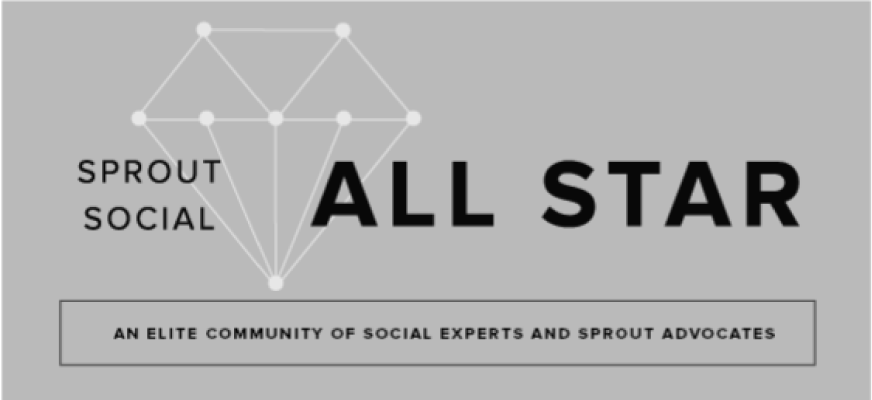 A guest post by Saul Fleischman...
A guest post by Saul Fleischman...
Links in tweets are links, and tweets are indexable. Links affect SEO. Most tweeted links are shortened now, but then, search engines already deal with redirects.
If we're talking about a standard Google Web Search, then Twitter has never directly affected SEO. However, Google did strike a deal to have access to Twitter's API for Google Realtime Search - discontinued earlier this month. This led to a better understanding of what would potentially be a trending topic in the organic search space, leading to more Universal SERPs including the realtime module. So in a way, it did affect SEO; quality deserves freshness and so, if the search query is related to recent events, then Google would deliver newer content on the first page. Google also tried to identify popular links. Within the Realtime results, it would "unshorten" links and then aggregate mentions of the full link to show how many people in total shared a page. This was certainly to discover new and trending topics, and also to give weight to a link's popularity with social signals, much in the manner backlinks have factored into the algorithm for PageRank. (Thanks for ideas, Kenny, at kennychung.net)
Industry-wide speculation was that Google+ could replace the value of the Twitter stream. Google loves to control data, and that was something they never really could do in tandem with Twitter. Do we think Google + does or will affect SEO? Definitely. How, and to what extent remains to be seen, however. Now, if you're talking about Google News, that is an entirely different arena. Twitter and other social networks definitely play a role in TrustRank, and that is a role of authority. I recommend reading on TrustRank as a whole if this topic is of interest.
A Little Q & A
To delve further, we have to look at the authority of a Twitter account, and Danny Sullivan reveals much in this interview with representatives of Google and Bing, via http://www.seomoz.org/blog/
Danny Sullivan: If an article is retweeted or referenced much in Twitter, do you count that as a signal outside of finding any non-nofollowed links that may naturally result from it?
Bing: We do look at the social authority of a user. We look at how many people you follow, how many follow you, and this can add a little weight to a listing in regular search results. It carries much more weight in Bing Social Search, where tweets from more authoritative people will flow to the top when best match relevancy is used.
Google: Yes, we do use it as a signal. It is used as a signal in our organic and news rankings. We also use it to enhance our news universal by marking how many people shared an article.
Danny Sullivan: Do you try to calculate the authority of someone who tweets that might be assigned to their Twitter page. Do you try to “know,” if you will, who they are?
Bing: Yes. We do calculate the authority of someone who tweets. For known public figures or publishers, we do associate them with who they are. (For example, query for Danny Sullivan)
Google: Yes we do compute and use author quality. We don’t know who anyone is in real life :-)
Danny Sullivan: Do you calculate whether a link should carry more weight depending on the person who tweets it?
Bing: Yes.
Google: Yes we do use this as a signal, and especially did in the “Top links” section [of Google Realtime Search]. Author authority is independent of PageRank, but it is currently only used in limited situations in ordinary web search.
Summing It Up
My final thoughts: just as with PeerIndex and Klout, though the search engine people tell us they try to assess authority, I say that one of it is reliable. What is? Numbers. If your tweet gets many retweets and your Twitter account is often mentioned, the tweet is going to count for more - in the long-run, at least. A tweet has a URL which lasts (ex. http://twitter.com/#!/
Guest-blogged by Saul Fleischman, who tweets most from @osakasaul and blogs at http://osakabentures.com/. (Pictured above)
14 Replies
-
@osakasaul:disqus , Helpful insight on the plugin – thank you for mentioning this tool! I’m using Skype more and more – So surely we should plan to catch up there soon. Once school starts again here soon in the US, I will have more opportunity. Thank you for your insight on Alexa, Saul. I’m sure @LaurindaShaver:disqus will also be interested. So, Alexa – Socialmarker – SiteLogic…Skype. Good to know you too, ~Keri
-
@osakasaul:disqus l, I need to delve into Alexa a bit further. It’s not currently high on my radar. But I do hear many thought leaders talk of this, and it is important. You may have found more information on this since this comment was written. If so, I would be interested in your insights. Thanks for sharing, and for offering such valuable posts!! ~Keri
-
Keri, aloha. What a delightful surprise to see Saul over here guest posting. Saul, what a terrific job you did explaining this. SEO is definitely not my strong suit so I appreciated the way you explained it, the conversation and the summing it up. One thing I do know, is we can drive ourselves nuts if we attempt to make everything “just so” for SEO. Google and the others change their measurements far too often. Both of you do what I believe needs to be done–you engage with folks. Best wishes for a terrific weekend. Aloha. Janet
-
@twitter-45938040:disqus , Great to see you here – Insightful comments. I too am not super-savvy at SEO, and find the technical stuff changes far to often to really keep up. It is nice to know that our social interaction gives us some help. 🙂 @osakasaul:disqus Gave some great advice, and I’m appreciative of his post and follow-up!! ~Keri
-
-
Another thing to remember is that we have to distinguish popularity search engines from click-through search engines. Google started as the foremost, but they’re looking at the latter a lot more now.. And all the social signals thereof. As such, SEO has changed completely. I’ve been doing SEO since the days when AltaVista, Lycos, Quarterdeck Mosaic, and Netscape were still cool.. It’s a very different playing field today! The key thing to remember is that no one knows exactly what affects SEO directly. It’s not completely a guessing game though.. Thing is, what works for some won’t work for others. It used to be that link juice was a bit part of it. If a site that had established authority and high rankings on SERP (Search Engine Result Pages) linked to you, you almost instantly jumped up in rankings. It’s not quite that easy now. You have to consider that Google search alone has over 200 rules in their algorithms and this year they are making hundreds of tweak in the new Panda algorithm. Ultimately, if you understand positioning, put social media to work, and target specific audiences, the SEO value will increase naturally.. But it’s still nice to have an SEO person like myself to do some of the legwork, interpret reports for you, and integrate your other strategies with the stuff that makes search engines love your content. One last thing: don’t translate authority as “massive numbers”. I’ve seen sites with a few links and low “social influence” out-perform sites that amplify their messages through multiple channels. It’s more about the quality of the content, how useful it is, and how engaged your audience is.. Of course, relevance, significance, and authority are all still very important, as elusive as they can be sometimes by search engine standards. I touch upon some SEO techniques in my upcoming UNbounce article, if you’re curious. As always, I’m always a tweet, e-mail, or Skype message away. Feel free to pick my brain. 8)
-
Another thing to remember is that we have to distinguish popularity search engines from click-through search engines. Google started as the foremost, but they’re looking at the latter a lot more now.. And all the social signals thereof. As such, SEO has changed completely. I’ve been doing SEO since the days when AltaVista, Lycos, Quarterdeck Mosaic, and Netscape were still cool.. It’s a very different playing field today! The key thing to remember is that no one knows exactly what affects SEO directly. It’s not completely a guessing game though.. Thing is, what works for some won’t work for others. It used to be that link juice was a bit part of it. If a site that had established authority and high rankings on SERP (Search Engine Result Pages) linked to you, you almost instantly jumped up in rankings. It’s not quite that easy now. You have to consider that Google search alone has over 200 rules in their algorithms and this year they are making hundreds of tweak in the new Panda algorithm. Ultimately, if you understand positioning, put social media to work, and target specific audiences, the SEO value will increase naturally.. But it’s still nice to have an SEO person like myself to do some of the legwork, interpret reports for you, and integrate your other strategies with the stuff that makes search engines love your content. One last thing: don’t translate authority as “massive numbers”. I’ve seen sites with a few links and low “social influence” out-perform sites that amplify their messages through multiple channels. It’s more about the quality of the content, how useful it is, and how engaged your audience is.. Of course, relevance, significance, and authority are all still very important, as elusive as they can be sometimes by search engine standards. I touch upon some SEO techniques in my upcoming UNbounce article, if you’re curious. As always, I’m always a tweet, e-mail, or Skype message away. Feel free to pick my brain. 8)
-
Another thing to remember is that we have to distinguish popularity search engines from click-through search engines. Google started as the foremost, but they’re looking at the latter a lot more now.. And all the social signals thereof. As such, SEO has changed completely. I’ve been doing SEO since the days when AltaVista, Lycos, Quarterdeck Mosaic, and Netscape were still cool.. It’s a very different playing field today! The key thing to remember is that no one knows exactly what affects SEO directly. It’s not completely a guessing game though.. Thing is, what works for some won’t work for others. It used to be that link juice was a bit part of it. If a site that had established authority and high rankings on SERP (Search Engine Result Pages) linked to you, you almost instantly jumped up in rankings. It’s not quite that easy now. You have to consider that Google search alone has over 200 rules in their algorithms and this year they are making hundreds of tweak in the new Panda algorithm. Ultimately, if you understand positioning, put social media to work, and target specific audiences, the SEO value will increase naturally.. But it’s still nice to have an SEO person like myself to do some of the legwork, interpret reports for you, and integrate your other strategies with the stuff that makes search engines love your content. One last thing: don’t translate authority as “massive numbers”. I’ve seen sites with a few links and low “social influence” out-perform sites that amplify their messages through multiple channels. It’s more about the quality of the content, how useful it is, and how engaged your audience is.. Of course, relevance, significance, and authority are all still very important, as elusive as they can be sometimes by search engine standards. I touch upon some SEO techniques in my upcoming UNbounce article, if you’re curious. As always, I’m always a tweet, e-mail, or Skype message away. Feel free to pick my brain. 8)
-
Terrific reply, @openid-84350:disqus . Great info, especially for newbies to the website & social game. SEO is an evolving mystery, so I think it is like a resume – Always be tweaking (knowledge of). People, pick his brain! (And use your blog as a hub, and your social networks – like Twitter – as outposts to attract and engage your audience). 😀
-
-
Pingback: Does Twitter Affect SEO?
-
This is good information, Saul. I’ll be curious to see how Google+ affects everything when I interact there a bit more. I’ve noticed that LinkedIn gets me more traction than Twitter in the SEO game, but Twitter is very good, and I think too many are not considering how much their social networks can be helping them. Thanks for giving light to social media credibility in the grand arena! 🙂 ~Keri
-
wow. there is alot of information to digest here, especially if you have only a very limited understanding of SEO. I was proud that I only had to look up 2 terms. 🙂 Thank you for an extremely informative post. I feel like I’m one step closer to understanding SEO than before.
-
wow. there is alot of information to digest here, especially if you have only a very limited understanding of SEO. I was proud that I only had to look up 2 terms. 🙂 Thank you for an extremely informative post. I feel like I’m one step closer to understanding SEO than before.
-
wow. there is alot of information to digest here, especially if you have only a very limited understanding of SEO. I was proud that I only had to look up 2 terms. 🙂 Thank you for an extremely informative post. I feel like I’m one step closer to understanding SEO than before.
-
@LaurindaShaver:disqus , SEO can be info-heavy and confusing for sure! I’ve learned a lot in the past few years. It was helpful for me to Google myself, and some of my key words. I’m still learning. I think we all are. Google+ will ensure we’ll all scramble a little for a bit too. Saul should be willing to answer some of your questions – He can be tweeted at @osakasaul:disqus (@osakasaul:twitter ). Thanks for stopping by! ~Keri
-
Leave a Reply

Like what you see? We've been told our blog posts are like potato chips: You can't read just one...
Subscribe to receive them fresh in your Inbox, and you can grab our best insights about social media marketing before everyone else sees it!

Relevant Resources
view allThe True Cost Of Letting Peak Sales Periods Pass You By

Three Surprising Signs You’re Still Silencing Your Female Employees

How Ongoing Training In The Workplace Can Drive Long-Term Business Growth






































By Keri J on